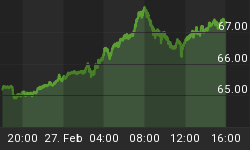Russia has been trying to interfere with U.S. energy markets and influence U.S. energy policy by using Russian operatives to troll social media platforms with divisive and inflammatory posts, a report by House Republicans has revealed.
The report—issued by the United States House of Representatives Committee on Science, Space, and Technology—includes examples of Russian-propagated content on Facebook, Twitter, and Instagram, targeting U.S. energy markets and domestic energy policy.
“Russian-sponsored agents funneled money to U.S. environmental organizations in an attempt to portray energy companies in a negative way and disrupt domestic energy markets,” the report said.
“Documents that the American social media companies produced for the Committee confirmed that Russian agents were exploiting American social media platforms in an effort to disrupt domestic energy markets, suppress research and development of fossil-fuels, and stymie efforts to expand the use of natural gas,” the Republicans’ report says.
“By posting content that supports positions held by both liberals and conservatives alike, the Russians used social media to instigate and inflame discord in the United States. Russian social media manipulators intentionally injected foreign propaganda into American political discourse. These Russian agents are only interested in creating discord in America while hiding behind an anonymous and misleading social media pseudonym, as demonstrated by the highly divisive, often contradictory posts provided in this report.” Related: Europe’s Newest Tax Haven
The Chairman of the U.S. House Science, Space, and Technology Committee, Lamar Smith (R-Texas) said in a statement, commenting on the report:
“Russia benefits from stirring up controversy about U.S. energy production. U.S. energy exports to European countries are increasing, which means they will have less reason to rely upon Russia for their energy needs. This, in turn, will reduce Russia’s influence on Europe to Russia’s detriment and Europe’s benefit. That’s why Russian agents attempted to manipulate Americans’ opinions about pipelines, fossil fuels, fracking and climate change. The American people deserve to know if what they see on social media is the creation of a foreign power seeking to undermine our domestic energy policy.”
Nevertheless, the United States is on track to soon become the world’s top crude oil producer, ousting Russia from the current no.1 spot, according to the International Energy Agency (IEA).
The House Science, Space, and Technology Committee top Democrat, Representative Bernice Johnson, said that Democrats had not participated in the report, but noted that Republicans were not as keen to look into Russia’s possible influence on the U.S. presidential election.
“To ignore known meddling in the very foundation of our democracy while focusing solely on Russia’s influence on the U.S. energy market -- a market that is currently booming -- seems irresponsible at best,” Johnson told Bloomberg in an emailed statement.
By Tsvetana Paraskova via Oilprice.com
More Top Reads From Safehaven.com:
















